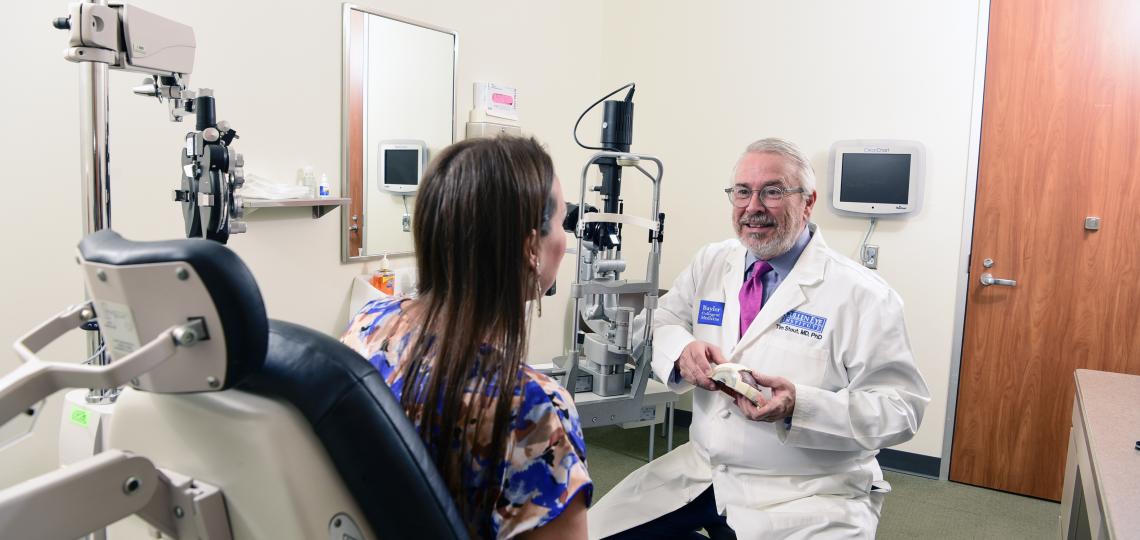Pediatrics in Andalusia: Compassionate Care for Growing Families
Pediatrics in Andalusia: Compassionate Care for Growing Families
Blog Article
Is Refractive Surgical Treatment Right for You? Factors to Think About for Better Eyecare
In the world of eye treatment, the choice to undertake refractive surgical procedure is a crucial one that requires thoughtful factor to consider. From the intricacies of one's ocular health to the intricacies of individual assumptions and day-to-day habits, each aspect holds relevance in the more comprehensive landscape of refractive surgical treatment candidateship.
Eye Wellness Evaluation
When considering refractive surgical treatment, a comprehensive eye health and wellness examination is crucial to examine the viability of the treatment for every person. neurologist andalusia. This analysis entails a collection of examinations and assessments performed by an eye care professional to identify the general health and wellness of the eyes, the visibility of any kind of underlying conditions, and the stability of the refractive error
Throughout the assessment, various variables are considered, such as the individual's case history, existing eye prescription, corneal density, pupil size, and tear film top quality. These assessments help to determine any type of contraindications to refractive surgical treatment, such as corneal irregularities, cataracts, or neglected eye infections. In addition, the evaluation assists to manage person assumptions pertaining to the possible outcomes of the surgical treatment based upon their unique eye qualities.
Inevitably, the eye wellness assessment is vital in making sure the safety and performance of refractive surgery, as it offers useful understandings right into the person's eye health condition and aids figure out one of the most suitable treatment options for achieving ideal aesthetic results. (andalusia pediatrics)
Way Of Living Analysis
A thorough lifestyle assessment is integral in identifying the suitability of refractive surgery for an individual's visual correction demands. Way of living variables such as line of work, leisure activities, and everyday activities play a vital function in the decision-making process concerning refractive surgery. People with professions that involve a high degree of physical task or exposure to ecological aspects may have various aesthetic needs compared to those with inactive workdesk work. Understanding exactly how an individual's way of life may influence their vision post-surgery is essential for taking care of expectations and ensuring optimum results.
Moreover, way of life routines such as sporting activities involvement, outside activities, or even skincare routines can influence the recovery procedure and total success of refractive surgical procedure. By carrying out a detailed way of living analysis, eye treatment professionals can customize their referrals and therapy strategies to fulfill the one-of-a-kind demands of each patient, eventually leading to enhanced aesthetic outcomes and satisfaction.
Assumption Placement

Clients require to comprehend that while several individuals attain 20/20 vision or better adhering to refractive surgery, some might still require glasses for particular activities like analysis or driving at evening. Handling have a peek at this site these assumptions helps protect against disappointment and frustration post-surgery, leading to a much more favorable general experience for the client.
Risk Evaluation

Aspects that may boost the risk of issues include age, specific clinical conditions like autoimmune conditions, unsteady vision prescription, slim corneas, and unrealistic individual assumptions. Furthermore, picking a skilled and skilled doctor, complying with pre and post-operative treatment instructions carefully, and disclosing any appropriate clinical history can assist alleviate threats.
To reduce the probability of complications, ophthalmologists conduct complete pre-operative evaluations to identify any kind of contraindications to surgical treatment. They also talk about the prospective risks and advantages with patients throughout the appointment process. By taking part in open communication and shared decision-making, both the person and the eye doctor can work together to establish if refractive surgery is the right option based upon individual danger profiles and wanted end results.
Appointment Relevance
Thinking about the important role of educated decision-making in analyzing dangers and potential difficulties in refractive surgical treatment, the consultation process holds considerable value in guiding patients towards ideal end results. Throughout the assessment, the eye doctor assesses the individual's eye wellness, refractive try here errors, and overall suitability for surgical treatment. This first analysis is critical in establishing the most ideal procedure for every individual, considering aspects such as corneal density, student size, and existing eye conditions.
Additionally, the assessment functions review as a possibility for people to review their assumptions, worries, and any inquiries they might have relating to the surgery. Clear interaction between the surgeon and the person is important to make sure practical expectations and an extensive understanding of the possible threats and advantages included.
In addition, the consultation enables the specialist to discuss the various medical choices readily available, their particular outcomes, and the post-operative care required. This detailed conversation equips patients to make well-informed decisions regarding their eye treatment, causing better fulfillment and end results post-surgery.
Final Thought
In conclusion, individuals considering refractive surgical procedure needs to go through a thorough eye health evaluation, examine their way of living routines, straighten their assumptions with potential end results, analyze the affiliated risks, and prioritize examinations with eye treatment professionals. These elements play an important function in determining the viability of refractive surgery for every individual, ensuring ideal outcomes and satisfaction with the treatment.
People considering refractive surgical treatment frequently have high assumptions pertaining to the results, expecting excellent vision without the requirement for glasses or contact lenses. While refractive surgery can significantly improve vision and decrease dependency on aesthetic aids, it is essential for clients to understand that results might differ based on individual variables such as the level of refractive mistake, corneal density, and overall eye health.
By engaging in open communication and shared decision-making, both the person and the ophthalmologist can work with each other to figure out if refractive surgical procedure is the best selection based on individual threat profiles and preferred end results.
Taking into consideration the crucial role of informed decision-making in examining dangers and potential problems in refractive surgical procedure, the appointment process holds substantial relevance in guiding people towards ideal outcomes. Throughout the appointment, the eye doctor examines the person's eye health, refractive mistakes, and overall suitability for surgery.
Report this page